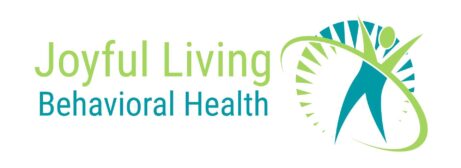Cognitive Behavioral Therapy in Eugene, OR

At Joyful Living Behavioral Therapy in Eugene, Oregon, we specialize in Cognitive Behavioral Therapy, helping individuals to recognize the connection between beliefs, thoughts, and feelings. This, in turn, empowers them to break free from unhelpful behavioral patterns and develop healthier coping mechanisms.
CBT: A Practical Approach for Lasting Change in Your Life
Unlike traditional talk therapy, which often explores past experiences and emotions in an open-ended way, Cognitive Behavioral Therapy is designed to provide practical tools for managing current challenges. CBT operates on the principle that our thoughts, feelings, and behaviors are interconnected. As a result, by recognizing unhelpful thinking patterns and replacing them with healthier alternatives, individuals can break cycles of anxiety, depression, or self-doubt.
CBT also differs from talk therapy through its:
Structured Approach
One of the key differences between CBT and traditional individual therapy is its structured and time-limited nature. While talk therapy offers a space for self-exploration and emotional processing, CBT is more focused on skill-building and problem-solving.
Measurable Goals
Sessions often involve exercises, homework assignments, and measurable goals to help clients actively apply what they learn in real life. This approach is particularly effective for those dealing with anxiety, depression, phobias, and other specific mental health concerns.
Focus on Changing Unhealthy Thoughts
At Joyful Living in Eugene, we integrate Cognitive Behavioral Therapy to help clients develop resilience and gain control over their thoughts and behaviors. If you’re ready to move beyond talking and start making real changes, CBT can empower you on your journey.
Areas Cognitive Behavioral Therapy Can Help With
Cognitive Behavioral Therapy is particularly effective for individuals dealing with well-defined emotional and behavioral challenges. By identifying and reshaping thought patterns that affect feelings and actions, CBT helps foster healthier responses to life’s difficulties. This process, known as cognitive restructuring, is achieved through various targeted CBT techniques designed to promote positive change.
As a result, Cognitive Behavioral Therapy can provide relief from:
Depression
CBT helps individuals reframe negative thought patterns that contribute to depressive symptoms. By identifying and challenging self-defeating beliefs, clients learn to develop healthier perspectives and improve mood stability.
Anxiety Disorders
Techniques in Cognitive Behavioral Therapy teach individuals how to manage and reduce anxiety. These methods include relaxation exercises, mindfulness, and cognitive reframing to reduce excessive worry and fear.
Panic Attacks
CBT provides tools to recognize and mitigate the triggers of panic attacks. Through controlled breathing, gradual exposure, and thought restructuring, individuals can regain control and lessen panic episodes.
Phobias
Through gradual exposure and cognitive restructuring, Cognitive Behavioral Therapy helps reduce irrational fears. Patients learn to confront their fears in a controlled manner, building confidence, and reducing avoidance behaviors.
Obsessive-Compulsive Disorder (OCD)
CBT helps in understanding and altering the thoughts and behaviors associated with OCD. Exposure and response prevention (ERP) is a core technique that enables individuals to break free from compulsive rituals.
Post-Traumatic Stress Disorder (PTSD)
Cognitive Behavioral Therapy aids in processing and coping with traumatic experiences. It helps individuals reframe distressing memories, reduce hypervigilance, and regain a sense of safety and control.
Chronic Pain
Cognitive Behavioral Therapy offers strategies for managing persistent pain. By shifting focus from pain perception to adaptive coping mechanisms, individuals can improve their daily functioning and overall well-being.
Disordered Eating
Cognitive Behavioral Therapy helps change harmful eating behaviors and thoughts and empowers individuals to find healing and balance. It addresses body image concerns, emotional eating triggers, and self-esteem issues to foster a healthier relationship with food.
Anger Management
CBT also provides techniques for navigating and managing anger and learning to reduce it. By identifying triggers and developing alternative responses, individuals can enhance emotional regulation and improve interpersonal relationships.
How CBT Works and What to Expect
At Joyful Living in Eugene, Cognitive Behavioral Therapy sessions are highly structured and goal-focused, ensuring productive and effective use of your time. The process begins with initial sessions to discuss the issues you’re facing, your history, and your goals for therapy. You will then learn various CBT techniques to manage negative thoughts and behaviors. Some common ones include:
- Challenging negative beliefs by questioning their validity and replacing them with healthier perspectives.
- Practicing relaxation techniques like deep breathing to reduce stress and anxiety.
- Developing problem-solving skills to navigate life’s challenges with confidence.
- Using meditation and mindfulness to enhance self-awareness and regulate emotions.
- Journaling to recognize and track negative thought patterns.
- Incorporating social and physical activities to improve mood and overall well-being.
Why Choose CBT Over Other Forms of Therapy?
Cognitive Behavioral Therapy is not only effective, but practical too. It typically requires fewer sessions than other forms of therapy and addresses current problems and how to solve them. In other words, this approach focuses on the future and can help individuals to develop skills to manage issues, promoting long-term well-being and a better quality of life.
Learn More About Cognitive Behavioral Therapy in Eugene, OR
If you or someone you know could benefit from Cognitive Behavioral Therapy, reach out to Joyful Living in Eugene, OR. Our experienced therapists are dedicated to helping our clients achieve mental wellness through evidence-based care. Contact us today to learn more about how CBT can help you lead a healthier, more fulfilling life.
